#George Mallaby
Explore tagged Tumblr posts
Text
George Mallaby

George Mallaby, in Homicide, colourised from black and white original , Episode 367, Born Loser (Broadcast 1973, filmed 1972).
#classic australian television#homicide#crawford productions#australia#1970s#melbourne#george mallaby#Born Loser#1972#1973#colourised#colourized#colorized
0 notes
Video
You're Not the Carefree Woman I Fell in Love With - Taster from Ben Mallaby on Vimeo.
Charlie... GEORGIA BROWN Max... TOM LORCAN
Director...BEN MALLABY Writer... GEORGIA BROWN Producer... KATIE COOPER 1st AD... KATE HOOD DOP... RHYS WARREN Gaffer... RIA GRIFFIN Sound... GEORGE DAVIES Runners... LAUREN WEEKES NEAVEN MELTON-LANGRISH MOLLIE HATCH
0 notes
Photo
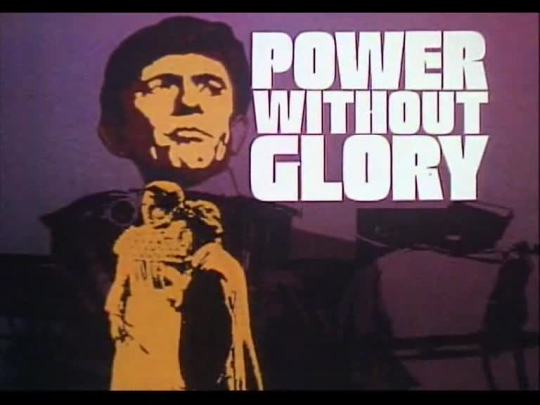
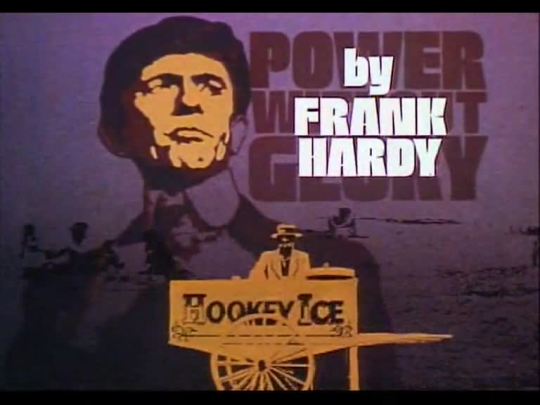
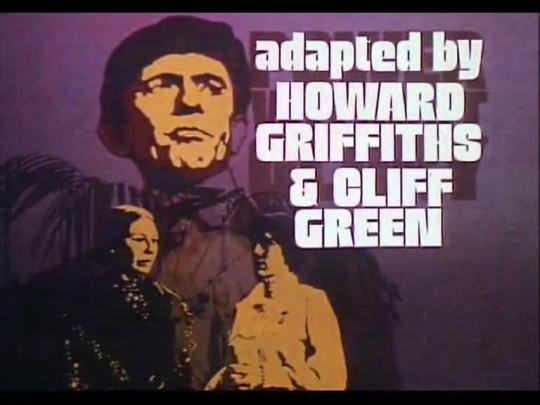
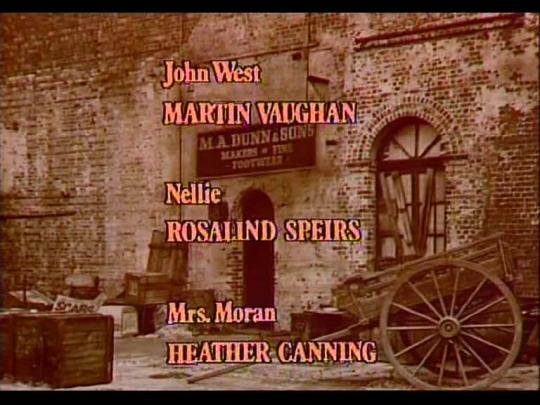
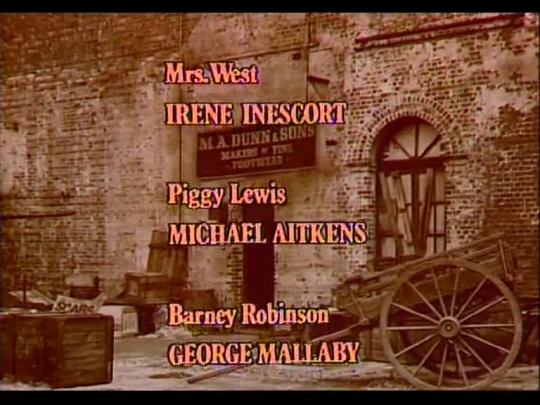
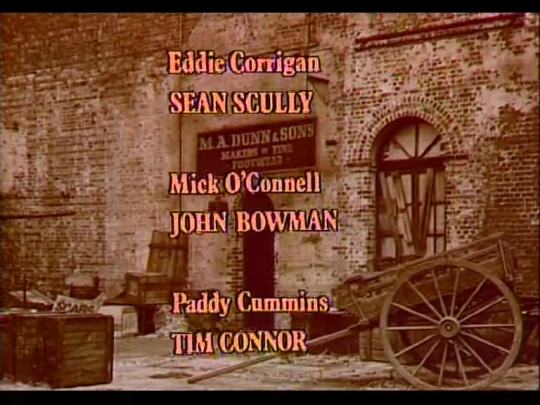
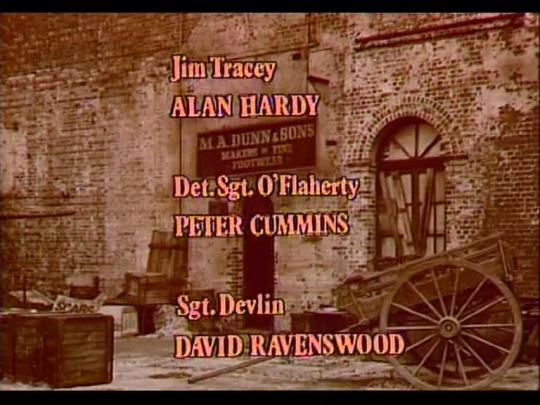
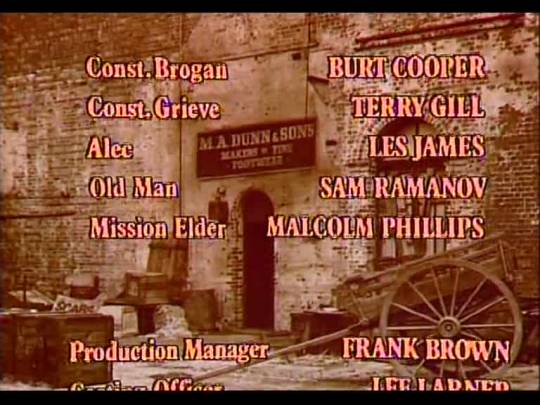
Power Without Glory - ABC (Aus) - June 21, 1976 - December 13, 1976
Drama / Miniseries (26 episodes)
Running Time: 60 minutes
Stars:
Martin Vaughan as John West
Rosalind Speirs as Nellie Moran
John Wood as Sugar Renfrey
Heather Canning as Mrs. Moran
Terence Donovan as Frank Lammence
Tim Robertson as Arthur West
Wendy Hughes as Mary West
George Mallaby as Barney Robinson
Michael Aitkens as Piggy Lewis
Barry Hill as Frank Ashton
Michael Pate as Archbishop Malone
Rowena Wallace as Harriet Marshall
Sean Scully as Eddie Corrigan
Leon Lissek as David Garside
Irene Inescort as Mrs. West
Tim Connor as Paddy Cummins
Tony Bonner as Brendan West
Leila Hayes as Florrie Robinson
Nick Bowman as Mick O’Connell
#Power Without Glory#TV#ABC#1970's#Drama#Martin Vaughan#Rosaline Speirs#Heather Canning#John Wood#terence Donovan#Tim Robertson#Wendy Hughes#George Mallaby#Michael AWitkens#Barry Hill#Michael Pate#Rowena Wallace#Sean Scully
0 notes
Text
The Ozploit Cast - Episode 7: '1976 to 1977 Films' Deathcheaters, Oz: A Rock 'N' Roll Road Movie, End Play, Fantasm Comes Again and The FJ Holden
The Ozploit Cast - Episode 7: '1976 to 1977 Films' Deathcheaters, Oz: A Rock 'N' Roll Road Movie, End Play, Fantasm Comes Again and The FJ Holden #Podcast #Podnation #Ozploitation
The Ozploit Cast – Episode 7: ‘1976 to 1977 Films’ Deathcheaters, Oz: A Rock ‘N’ Roll Road Movie, End Play, Fantasm Comes Again and The FJ Holden Download HERE https://supermarcey.files.wordpress.com/2022/02/the-ozploit-cast-episode-7-1976-to-1977-films-deathcheaters-oz-a-rock-n-roll-road-movie-end-play-fantasm-comes-again-and-the-fj-holden.mp3 Welcome to our Podcast series from The Super…
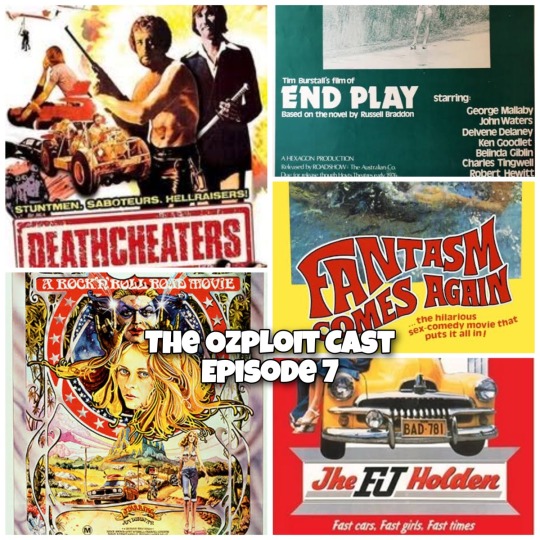
View On WordPress
#20th Century Oz#Brian Trenchard-Smith#Bruce Spence#Deathcheaters#End Play#Fantasm#Fantasm Comes Again#George Mallaby#Glam Rock#Grant Page#John Hargraves#John Waters#Michael Thornhill#Oz#Oz A Rock N Roll Road Movie#Ozploitation#podcast#Sigrid Thornton#The FJ Holden#The Ozploit Cast#The Wizard Of Oz
0 notes
Text
Sebastian Mallaby, shamelessly—nay, nakedly—covering Alan’s ass
(Author’s note: What started as a brief headslap directed at Sebastian Mallaby turned into a 3,000+ word semi-diatribe on the subject of the multiple sins of Sebastian, Alan Greenspan, and a few other big-wigs. Read at your own risk.)
Okay, not my ass, the other Alan’s ass—Alan Greenspan, former chairman of the Federal Reserve. The tenth anniversary of the collapse of Lehman Brothers prompted Sebastian—or at least gave him the hook—to play the ever-popular “exploding the myth” card, this time explaining that “we” were all so wrong to blame the Great Recession on Greenspan, godfather of the notion that markets are never wrong. Said Mallaby
The central error in the popular post-crisis consensus was the idea that naive believers in the self-policing efficiency of markets led us over the precipice. Greenspan was painted as the high priest of this laissez-fairy-tale delusion, and people seized on a moment when he appeared to plead guilty: Under the pressure of congressional questioning, he confessed to a ‘flaw’ in his pro-market ideology. What Greenspan meant was that all belief systems — whether pro-government or pro-market — are imperfect. But that subtlety was lost. Quoted and requoted without proportion or context, Greenspan’s purported mea culpa threatened to define his legacy.
“[L]aissez-fairy-tale”? Funny, Sebastian, funny! You’re a funny man! But, alas, too honest for your own good! You see, Sebastian very sportingly linked us to an article that appeared in the New York Times that described the events of the congressional hearing at which Greenspan made his “purported mea culpa”, which was not “purported” at all. The article, “Greenspan Concedes Error on Regulation”, by Edmund L. Andrews (or “Eddie L”, as his friends call him), ran on Oct. 24, 2008, and, sportingly or unsportingly, quoted Alan a little bit more extensively than Sebastian did, to wit:
“Those of us who have looked to the self-interest of lending institutions to protect shareholders’ equity, myself included, are in a state of shocked disbelief.”
That doesn’t sound like a “purported mea culpa” to me. It sounds more like “guilty as charged.” Greenspan didn’t “mean” that there are more things in heaven and earth than are dreamt of in human philosophies. He meant that “[t]hose of us who have looked to the self-interest of lending institutions to protect shareholders’ equity, myself included, are in a state of shocked disbelief.”
Mallaby goes on in his column to cite instances where the supposedly laissez-faire Greenspan actually labored, over and over again, to increase the regulation of unruly markets, only to be thwarted, over and over again:
The important lesson of the crisis is not that markets are fallible, which every thoughtful person knew already. It is that essential regulations — the sort that the supposedly anti-regulation Greenspan actually favored — are stymied by fractured government machinery and rapacious lobbies. Even today, the financial system has multiple overseers answerable to multiple congressional committees, because all this multiplying produces extra opportunities for lawmakers to extract campaign contributions.
In other words, as Herbert Hoover said, “The trouble with capitalism is capitalists. They’re too damned greedy.” Well, Milton Friedman said the same thing, noting that every businessman wants special favors for no one—except himself, that is, because his business is unique in all the world. But expatiating on the warped wood of humanity doesn’t let Greenspan as easily off the hook as Mallaby would have us believe. The Times article by Andrews carries some pretty damning paragraphs:
Critics, including many economists, now blame the former Fed chairman for the financial crisis that is tipping the economy into a potentially deep recession. Mr. Greenspan’s critics say that he encouraged the bubble in housing prices by keeping interest rates too low for too long and that he failed to rein in the explosive growth of risky and often fraudulent mortgage lending.
“You had the authority to prevent irresponsible lending practices that led to the subprime mortgage crisis. You were advised to do so by many others,” said Representative Henry A. Waxman of California, chairman of the committee [that heard Greenspan’s testimony]. “Do you feel that your ideology pushed you to make decisions that you wish you had not made?”
Mr. Greenspan conceded: “Yes, I’ve found a flaw. I don’t know how significant or permanent it is. But I’ve been very distressed by that fact.”
On a day that brought more bad news about rising home foreclosures and slumping employment, Mr. Greenspan refused to accept blame for the crisis but acknowledged that his belief in deregulation had been shaken.
He noted that the immense and largely unregulated business of spreading financial risk widely, through the use of exotic financial instruments called derivatives, had gotten out of control and had added to the havoc of today’s crisis. As far back as 1994, Mr. Greenspan staunchly and successfully opposed tougher regulation on derivatives.
But on Thursday, he agreed that the multitrillion-dollar market for credit default swaps, instruments originally created to insure bond investors against the risk of default, needed to be restrained.
“This modern risk-management paradigm held sway for decades,” he said. “The whole intellectual edifice, however, collapsed in the summer of last year.”
Mr. Waxman noted that the Fed chairman had been one of the nation’s leading voices for deregulation, displaying past statements in which Mr. Greenspan had argued that government regulators were no better than markets at imposing discipline.
“Were you wrong?” Mr. Waxman asked.
“Partially,” the former Fed chairman reluctantly answered, before trying to parse his concession as thinly as possible.
So it sounds very much as though Mr. Greenspan, and the rest of us, were hoist, not merely on the warped wood of humanity but via Mr. Greenspan’s warped ideology as well.
So far, so good. But instead of dispatching Mr. Mallaby’s disingenuous tomfoolery simply on the basis of the Times article—doing so might make a tomfool out of me, which has happened more than once—I decided to do a little digging. I didn’t feel like reading Mr. Mallaby’s biography of Greenspan, The Man Who Knew: The Life and Times of Alan Greenspan, but fortunately I found a pretty classy shortcut—a long, generally complimentary review1 by none other than Ben Bernanke, former chair of President George W. Bush’s Council of Economic Advisors and, in 2006, Alan Greenspan’s successor as chair of the federal reserve.
Overall, I would call Benanke’s review “complimentary”—too complimentary, in fact—of both Mallaby and Greenspan. Bernanke follows Mallaby in insisting that Greenspan wasn’t a blinkered ideologue:
However, contrary to the stereotype, Greenspan was not inflexibly opposed to tougher rules and oversight of financial activities. He rarely resisted regulatory initiatives put forth by the Federal Reserve Board staff, for example, and on at least a few occasions he publicly advocated stronger financial regulation—Mallaby cites in particular Greenspan’s concerns about the government-sponsored enterprises, Fannie Mae and Freddie Mac, and his support for enhanced auditing standards after the Enron scandal.
Furthermore, Bernanke “explains” that when Greenspan did oppose regulation that, in retrospect, might have helped prevent or mitigate the 2008 crash, his reasons for doing so were nuanced (my word) rather than knee-jerk:
The multiple influences on Greenspan’s regulatory views are nicely conveyed in Mallaby’s recounting of two famous episodes involving, respectively, Brooksley Born of the Commodity Futures Trading Commission and Ned Gramlich of Greenspan’s own Board. Born’s advocacy of expanded derivatives regulation and Gramlich’s support for tougher restrictions on subprime mortgage lending were both opposed by Greenspan (and, in Born’s case, also by Robert Rubin and Larry Summers of the Clinton Treasury). In retrospect, of course, Born and Gramlich were (largely) right and Greenspan was wrong. What Mallaby shows, however, is that the debates over their proposals were not the black-and-white ideological clashes they are often made out to be, but rather involved a range of personal, political, and policy considerations, consistent with Mallaby’s less ideological portrait of Greenspan.
So (rather combining Mallaby’s, Andrews’, and Bernanke’s accounts), when Greenspan opposed regulation, or at least failed to achieve it, it wasn’t simply because of ideology; rather, it involved a “range of personal, political, and policy considerations”. Yes, but the end result was, miraculously enough, always the same, reminding me of a verse from Lewis Carroll:
But I was thinking of a plan To dye one’s whiskers green And always use so large a fan That they could not be seen.
However copious the fan, Alan’s whiskers, it seems, always glow greenly in the twilight.
But wait, there's more In fact, I’m just getting started. Bernanke and Mallaby have a lot to say about the $64 question, which Sebastian left out entirely of his column exonerating Greenspan of any blame for failing to avert the events that culminated in the ’08 Crash. Bernanke puts it this way: “much more so than most economists, especially academics, Greenspan was willing to entertain the possibility that financial markets could go seriously off the rails. This leaves the author [Mallaby], though, with a bit of a problem: If Greenspan was not ideologically constrained, and if he was ‘the man who knew’ the dangers posed by financial instability, why didn’t he do more to prevent the building risks that culminated in the 2007 financial crisis?”
Well, says Mallaby, “Despite his extraordinary prestige, Greenspan knew he could survive in Washington only by avoiding fights, or by engaging in them passively and deviously. It was an approach that came naturally to a sensitive, shy man. Haunted by the absence of a pale father, intimidated by the presence of a vivid mother, he often lacked the confidence to confront others personally and directly.”
So it’s mommy issues, plus those rapacious lobbyists once more, who scared poor Alan. That’s why he didn’t push for stronger regulation. But what about “monetary” issues, asks Bernanke? Here, Bernanke says, Mallaby is tougher, and makes criticisms that he didn’t make in his September 9 post: “Mallaby concludes that Greenspan can therefore be held culpable for not using his control of monetary policy to prevent the buildup of financial risks. Most importantly, Mallaby argues, Greenspan should have kept policy tighter than he did during 1998-99 and 2004-2005, to fight the tech bubble and the housing bubble, respectively.”
Was it ideology this time around? Not really, says Mallaby. Again, it was pretty much the vivid mommy thing that kept Alan from mixing it up with the big, bad boys on Wall Street. On the one hand, Bernanke is dubious of this theory. He doesn’t think Greenspan was a fraidy cat. On the other, he doesn’t think Greenspan was too slow off the mark, particularly in addressing the housing bubble, which he claims Greenspan started to do in June 2004, when the bubble wasn’t all that big and unemployment was “still 5.6 percent.” (Apparently, bubbles can be useful when unemployment is “high”). Mallaby and Bernanke wield different fans, but Greenspan’s whiskers still remain discreetly hidden.
There is some “interesting” real-time commentary on this subject via a column by Paul Krugman dated Aug. 29, 2005, “Alan Greenspan and the Bubble”, who unsurprisingly offers a sharper take on the matter, pointing out that in October 2004, Greenspan said, regarding the increases in housing prices, “While local economies may experience significant speculative price imbalances, a national severe price distortion seems most unlikely.” Krugman also notes that by 2005 Greenspan was warning against “the prevalence of interest-only loans and the introduction of more-exotic forms of adjustable-rate mortgages.” But, says Krugman, in 2004 Greenspan liked adjustable-rate mortgages, quoting him as saying “American consumers might benefit if lenders provided greater mortgage product alternatives to the traditional fixed-rate mortgage.”
Krugman also notes other shortcomings of Greenspan that remain unmentioned by either Mallaby or Bernanke, both in his Aug. 29 column and in later postings. Krugman rightly toasts Greenspan for the following:
Regular readers know that I have never forgiven the Federal Reserve chairman for his role in creating today's budget deficit. In 2001 Mr. Greenspan, a stern fiscal taskmaster during the Clinton years, gave decisive support to the Bush administration's irresponsible tax cuts, urging Congress to reduce the federal government's revenue so that it wouldn't pay off its debt too quickly.
Since then, federal debt has soared. But as far as I can tell, Mr. Greenspan has never admitted that he gave Congress bad advice. He has, however, gone back to lecturing us about the evils of deficits.
In fact, Greenspan’s role in greenlighting the Bush tax cuts was disgraceful, and for that a little psychologizing, sans mommy, this time around, is in order. A lot of Republican big-shots blame George H. W. Bush’s 1992 loss to Bill Clinton on Greenspan, who raised rates towards the end of Bush’s first (first and only) term, helping precipitate the recession that certainly helped Clinton, though Bush was really hurt, in my opinion, by being the one who had to clean up the fiscal mess left by Ronnie’s free-spending ways, including the bill for the savings and loans debacle, which cost the taxpayers about $130 billion (unadjusted dollars), circa 1989-1995.
Once Clinton was in, Greenspan fairly made Clinton beg for his approval, which Clinton finally obtained by passing a budget with both tax increases and spending cuts, despite furious Republican opposition. Clinton courted Greenspan obsequiously throughout his two terms, and making Greenspan happy made Wall Street happy as well.
When George W. Bush took office, his package of massive tax cuts for the rich was the last thing the American economy needed, but if Greenspan had given it the review it deserved, his old friends would have cut him, not just socially, but physically as well. I don’t know if Greenspan was “sensitive and shy,” or just a coward, but the result was the same. He abandoned all the “rigor” which Clinton had to endure and fell back on the simple-minded Republican cliché that all tax cuts are good, no matter the circumstances. Naturally, after giving the Bush package the thumb’s up it needed, Greenspan made some vague noises about having to “review” the cuts if economic conditions changed, even though he knew that no one was listening, and even though he knew the only “review” the Republicans would accept would be making the supposedly “ten years only” cuts permanent.2
But wait, there’s still more Yes, indeed. In another column, Krugman links us to a posting by Brad DeLong, circa 2013, recalling remarks Greenspan made out of office in 2010 regarding President Obama’s counter-cyclical deficit spending program. Intoned Greenspan (elisions were made by DeLong):
With huge deficits currently having no evident effect on either inflation or long-term interest rates, the budget constraints of the past are missing. It is little comfort that the dollar is still the least worst of the major fiat currencies. But the inexorable rise in the price of gold indicates a large number of investors are seeking a safe haven beyond fiat currencies. The United States, and most of the rest of the developed world, is in need of a tectonic shift in fiscal policy. Incremental change will not be adequate….
I believe the fears of budget contraction inducing a renewed decline of economic activity are misplaced. The current spending momentum is so pressing that it is highly unlikely that any politically feasible fiscal constraint will unleash new deflationary forces…. Fortunately, the very severity of the pending crisis and growing analogies to Greece set the stage for a serious response. That response needs to recognize that the range of error of long-term U.S. budget forecasts (especially of Medicare) is, in historic perspective, exceptionally wide. Our economy cannot afford a major mistake in underestimating the corrosive momentum of this fiscal crisis. Our policy focus must therefore err significantly on the side of restraint.
Got that? The smart money is going to gold, and we’re going to Greece! Unfortunately for Greenspan, though not for the U.S., his “forecast”/stab in the back proved entirely and completely wrong, and under Obama’s stewardship, despite hysterical and despicable Republican opposition, the U.S. emerged from the Great Recession in better shape than any advanced economy except Germany, which conveniently off-loaded all of its problems on lesser nations, while the U.S. took care of an entire continent largely by itself.3 I guess one can say that Greenspan didn’t follow a knee-jerk “free markets good, governments bad” philosophy. Except when a Democrat was in the White House.
Afterwords There are plenty of “ten years after” takes on Lehman’s and the Great Recession as a whole floating around on the web. Over at Bloomberg, Barry Ritholtz has a column, “Ten Things People Still Get Wrong About the Financial Crisis”, which isn’t bad, though Barry tends to present conclusions rather than arguments, so if you want him to “prove it”, you generally have to follow some links and do some reading, or maybe read his book, Bailout Nation: How Greed and Easy Money Corrupted Wall Street and Shook the World Economy, which I haven’t done. I like Barry for, among other things, suggesting that a lot of people should have gone to jail who didn’t, thanks to Wall Street “gentlemen” like Ben Bernanke, Tim Geithner (then head of the New York Federal Reserve and later Obama’s secretary of the treasury) and Henry Paulson, Bush’s secretary of the treasury, who insisted on treating the collapse as an unforeseeable act of God, who after all works in mysterious ways and anyway these are guys I’ve had lunch with at the Four Seasons for past twenty years so shut up already with your goddamn finger-pointing. Barry doesn’t endear himself to me by claiming that you can predict the future, so don’t listen to him when he talks like that.4
Bernanke says his article isn’t a review—“I want instead to comment on Mallaby’s overall assessment of Greenspan—most especially, the Chairman’s responsibility for the 2007 financial crisis.” Well, close enough for me. Anyway, Bernanke says “highly recommended.” ↩︎
To avoid political difficulties, Republicans pretended they would let the cuts would expire after ten years. They just did the same thing under Trump when they passed the latest Republican rich man’s giveaway. ↩︎
I’m not saying that Canada and Mexico got a free ride, but a disastrous U.S. economy would have been a disaster for our two large neighbors as well. ↩︎
Barry’s written a foreword to one of those “How to Make a Fortune” books, which does not impress me. You can make a fortune of Wall Street if you have a (good) college education, work reasonably hard, live a frugal (i.e., boring) life, and invest generously in “index funds” for your 401k for a good 35 years (read A Random Walk on Wall Street for more info). The only hitch is, by the time you’re rich you’ll be too old to enjoy it. Life is a bitch! ↩︎
0 notes
Text
George Mallaby and Marie Redshaw

Marie Redshaw and George Mallaby in Homicide, Episode 392, They Frighten Even Me (1973)
#classic australian television#homicide#crawford productions#australia#1970s#melbourne#George Mallaby#Marie Redshaw
0 notes
Text
George Mallaby
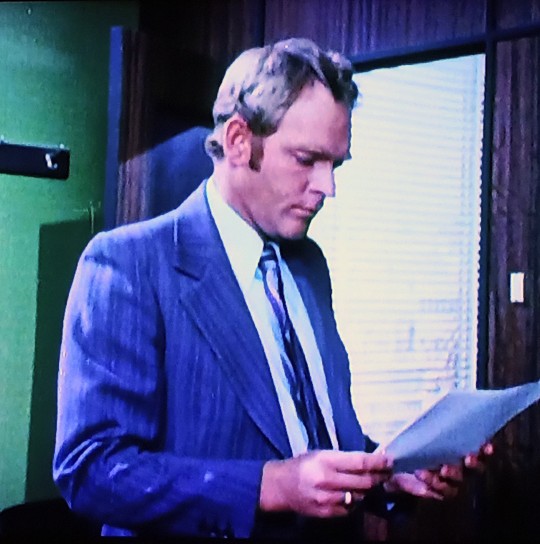
George Mallaby in Homicide, Episode 392, They Frighten Even Me (1973)
#classic australian television#homicide#crawford productions#australia#1970s#melbourne#George Mallaby
0 notes
Video
You're Not the Carefree Woman I Fell in Love With - Taster from Ben Mallaby on Vimeo.
Charlie... GEORGIA BROWN Max... TOM LORCAN
Director...BEN MALLABY Writer... GEORGIA BROWN Producer... KATIE COOPER 1st AD... KATE HOOD DOP... RHYS WARREN Gaffer... RIA GRIFFIN Sound... GEORGE DAVIES Runners... LAUREN WEEKES NEAVEN MELTON-LANGRISH MOLLIE HATCH
0 notes
Video
vimeo
Hack from Ben Mallaby on Vimeo.
Witness the Ultimate Life Hack
Starring: Alice Etches @aliceetches Gem Carmella @gem_carmella Luke Rollason @lukerollasonisaclown Toby Williams @mrtobywilliams
Director: Ben Mallaby @Mallaby Writer: Toby Williams @mrtobywilliams Producer: Katie Cooper @fromkatewithlove Director of Photography: Rhys Warren @rhyswarren 1st AD: Joey Barlow @joeybarlowfilms Script Supervisor: Joe G Clift @joegclift Sound Recordist: George Davies @george_t.e_davies 1st AC: Oliver Pearson Pajtra @ollie_pp 2nd AC: Phoebe Little @phoebemarielittle Camera Trainee: Molly Stobart @mollystobart Art Director: Ieva Petrav @ievapetrav Assistant Art: Archer Merry @archer_merry Assistant Art: Ruby Sanders Assistant Art: Macy Brown SFX Makeup Designer: Tillie Robinson Smith @thebronzerbandit Gaffer: Ryan Anderson @ryanflood_lights Spark: Vlada Malka VFX: James Johnson Composer: Thomas George Thanks to: Nick Flugge
0 notes
Video
Elderflower from Ben Mallaby on Vimeo.
Emily has opened a florist, she's living her dream, but she soon learns her new venture used to be a front for an entirely different business all together.
Written by Hannah George and Lou Sanders Directed by Ben Mallaby Produced by Gina lyons Co-Produced by Vanya Sacha Exec Produced by Tim Connolly Edited by Tom Mooring Music by Joe Worters
Cast
Lou Sanders Sheila Reid Tom Rosenthal Mike Wozniak Tony Law Marek Larwood
Plus: Pamela Binns Ingrid Evans Toby Williams Kedar-Williams Stirling
0 notes